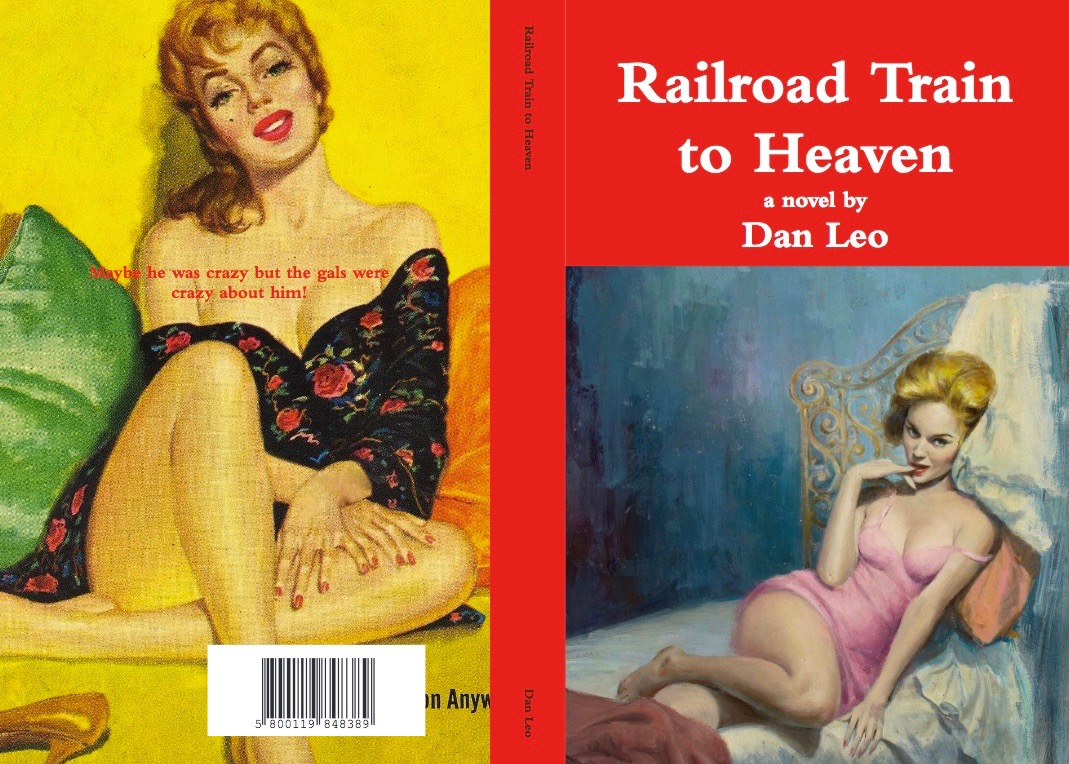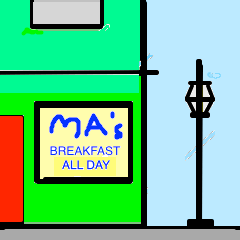Miss Blotnick opened the door without knocking, came in, and closed the door behind her. She did that sometimes. Philip would have preferred it if she used the intercom, that’s what he had bought it for, or she could at least knock first, but he didn’t have the heart to say anything to her about it.
She came up to his desk and leaned over it.
“There’s a strange dame out there.”
“Do we get any other kind of dames out there?”
“She says she knows you.”
“Did she give you her name?”
“She said to tell you it’s your friend from the mountains.”
“My what?”
“Your friend from the mountains.”
“The mountains?”“You want me to get rid of her?”
Edna.
“I’ll get rid of her,” said Miss Blotnick.
“No, no,” said Philip. “Please show her in, Miss Blotnick.”
“Don’t forget you got to be in the courthouse at one.”
“I won’t forget.”
“All right.”
Miss Blotnick went out, and a minute later she showed Edna in. Miss Blotnick stood in the doorway. Philip came around from his desk.
“You can close the door, Miss Blotnick.”
She shut the door.
Edna stood there, in a smart grey suit and pale blue coat, with a black leather shoulder bag, a blue pillbox hat.
“I like your secretary,” she said.
“She’s very protective of me,” said Philip.
They didn’t shake hands, let alone kiss or embrace. They had never got that far in the physical realm.
“Can I, uh, take your coat, or –”
“I’ll keep it on.”
“Won’t you sit?”
She sat in one of the two armchairs facing his desk, and Philip resumed his seat behind it.
She took off her gloves, white gloves, dropped them in her purse, took out her cigarettes. Herbert Tareyton cork tips. Up in the mountains she had usually bummed his Luckies. Philip leaned across the desk and gave her a light, then he lighted one of his own.
“I had to do some serious detective work to find you.”
“Oh really?”
“Yeah. I called your firm and they told me you had started up your own practice down here.”
“As you see!”
“So I guess this isn’t what they call a white shoe firm.”
“Ha ha, far from it.”
“I guess this is a slum, right?”
“Well, let’s say low income.”
“So you wanted a change?”
“Yes, I wanted a change.”
“People, places and things.”
“Yeah, that sort of thing.”
“How do you like it?”
“It’s okay. It’s very different from what I’d been used to.”
“I’m sure it is. You staying off the sauce?”
“Yes.”
“Me too. But I only got home a couple of weeks ago.”
“And how’s it going?”
“I go to these suburban AA meetings every day.”
“And how are they?”
“An absolute scream.” She looked around, at his empty walls. “My husband thinks I should get pregnant and we can start living a normal life.”
“Well, why not?”
“I’m bored out of my skull, Philip.”
“If you have a child you won’t be bored.”
“Yeah, you’re probably right. And if I have two or three or four kids I’ll be really not bored.”
“Maybe you should pursue a career?”
“Yeah, maybe. You know, you could decorate this office a little bit.”
“I keep thinking that, but ever since I moved in here I’ve been so busy.”
“Lots of clients, huh?”
“You wouldn’t believe.”
“Poor people?”
“Yeah, most of them don’t have too much money, or any money.”
“How do they pay you?”
“It seems that most of them don’t.”
“You’re too kind, Philip.”
“Maybe.”
They didn’t say anything for a minute, but they had both gotten used to long silences at the sanitarium, up in the mountains.
“You look good, Edna.”
“You too, Philip.”
There was a lot to say, a lot they could have said.
“Tell you what,” said Philip, “do you want to go for a bite of lunch?”
“I don’t want to keep you from your work.”
“I have to eat lunch anyway.”
“Okay.”
“There’s a diner right down the block here.”
“A diner.”
“You’ll like it, it’s called Ma’s Diner.”
“Ma’s Diner.”
“No, it’s good.”
“I’ll bet.”
“It’s not the Stork Club.”
“Thank God.”
“I have to be downtown in court by one.”
She looked at the slim golden watch on her wrist.
“Shall we go then.”
Philip got up.
Would they have an affair, or would they just talk, or not talk, as they had back at the sanitarium, during their walks through the grounds and the woods and along the roads with the snow banked up high as their heads…
In the reception area Philip took his topcoat and hat from the clothes tree and said, “We’re just going down to Ma’s for lunch, Miss Blotnick.”
“City Hall, Mr. Philip. One o’clock.”
“I won’t forget.”
He opened the door for Edna, and they went out onto Bleecker Street.
{Please go here to read the “adult comix” version in A Flophouse Is Not a Home, illustrated by the illustrious Rhoda Penmarq…}




